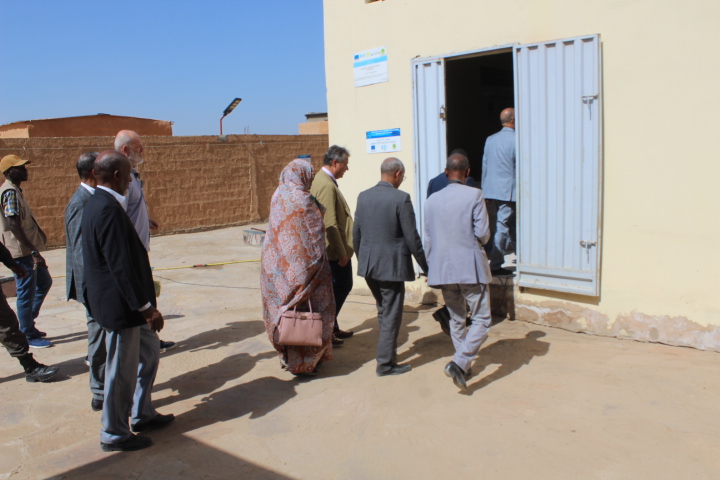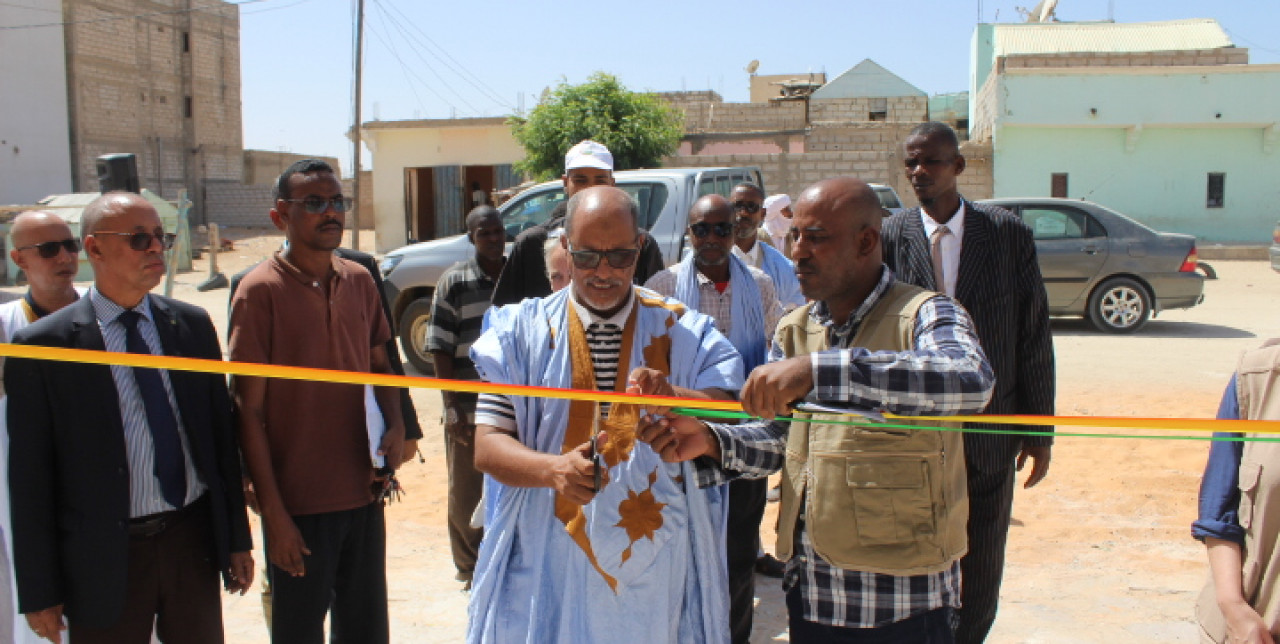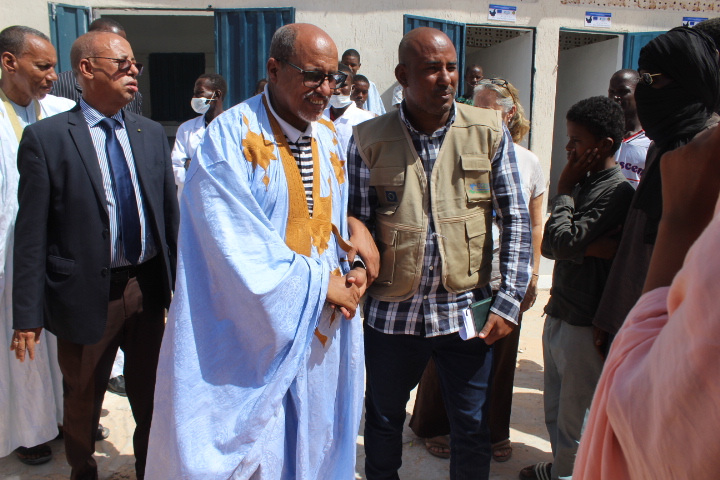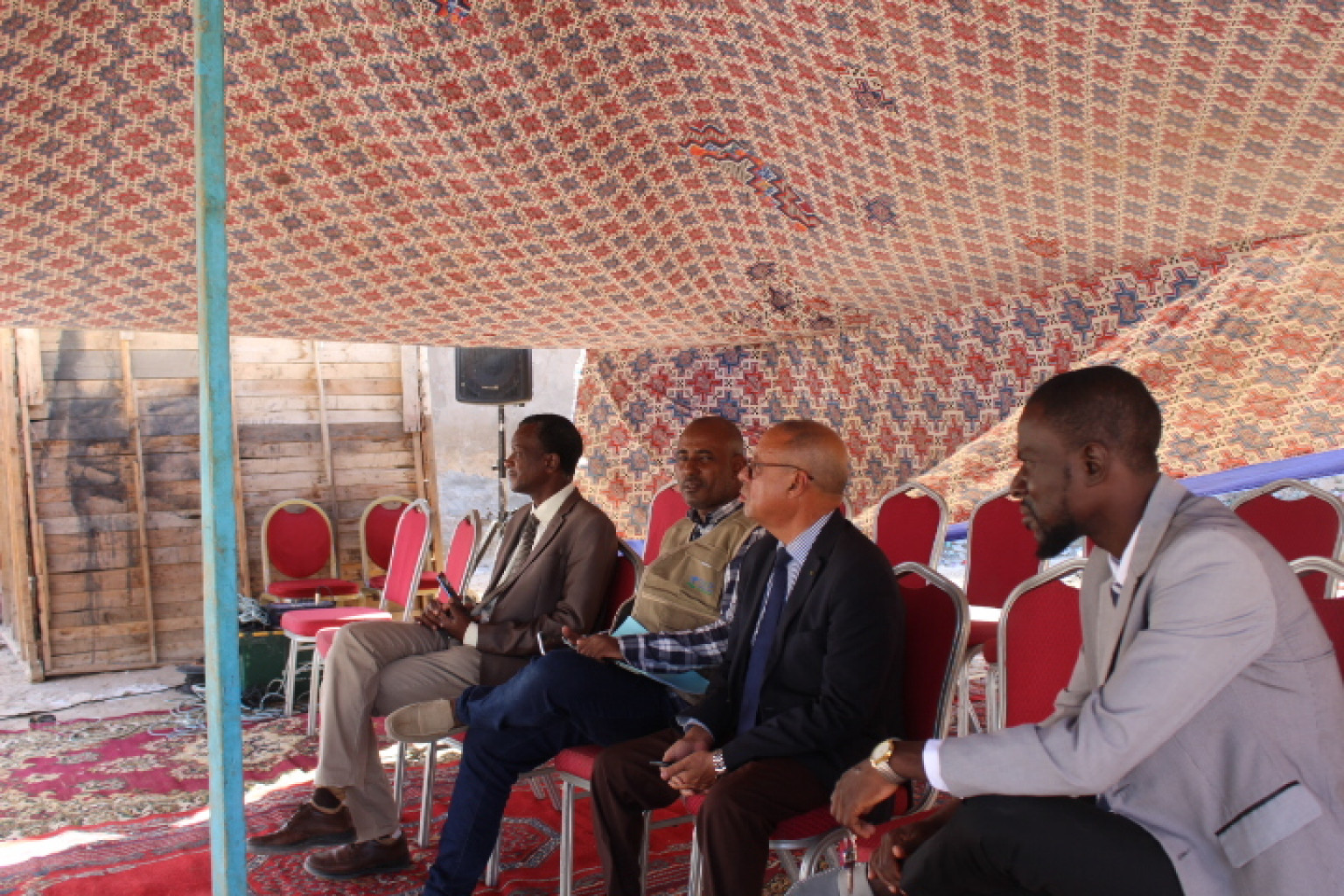11-11-2023 | di COOPI
Mauritania. Inauguration of new facilities to support local economy
In the last 2 months of the EU-funded PACAO project 'West Africa Competitiveness Support Programme - Mauritania component', a new tanning centre in Menjed and three poultry selling points in Nouakchott were inaugurated.
Started in June 2019 and ending on 18 November 2023, the PACAO project aimed to help improve the competitiveness of some commercial sectors in Mauritania, such as the gum Arabic, skins and leather and poultry.
These inaugurations will contribute not only to the improvement of the working conditions of poultry farmers and leather workers in several municipalities of the country, but also to the strengthening of Mauritania's independence from imports.
The tanning centre at the Menjed site, built in accordance with health standards, will be run by 11 cooperatives and five cobblers under the constant supervision of the Ministry through the Department of Handicrafts.

Photo: opening of Menjed tanning site
On the other side, the three poultry selling points, in the municipalities of Sabkha, Toujinine and Tevregh Zeina, will be taken over by professional poultry farmers from the respective communities. The facilities, with a slaughter capacity of 150 to 450 chickens per day, will improve the quality of Mauritanian chicken meat, making it more accessible to the population. The PACAO programme has also helped to train about a hundred broiler breeders, implementing their technical, material and financial skills. The inauguration of the three outlets was attended by the mayors of the three municipalities, the representative of the European Union Delegation in Mauritania, and the Secretary General of the Mauritanian Ministry of Trade, Industry, Crafts and Tourism.
Photo: opening of the poultry selling points
The head of COOPI mission and the head of Delegation of the European Union highlighted that these spaces were built for the community and with the community, reiterating the importance of the presence of the representatives of the municipalities for the handover in terms of ownership and appropriation. Emphasis was placed on the promotion of local production as a mean to make communities as independent as possible from imports and to contribute to the growth of the country's economy. In addition, the hygiene standards adopted will ensure food safety and consumer health.
Acting at various levels of the production and marketing chain and considering environmental, health, access to resources and social inclusion issues, the PACAO project was concluded after four years of activities.




 Mauritania
Mauritania


